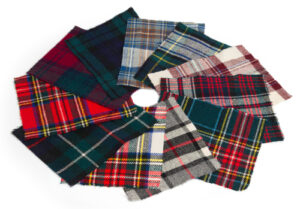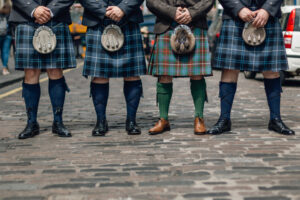The history of Scotland captures imaginations from around the world as you trace your Scottish ancestry. The history of Scotland captures imaginations from around the world as you look to discover your Scottish roots.
Whether your surname hints at Highland origins or your great-grandparents emigrated from a small village near Oban, tracing your Scottish ancestry can be an enriching and meaningful journey. Understand your ancestral links to Scotland and plan your journey to Scotland to discover your family's past.
The best place to begin is at home with your family, especially the older generations, to gather any information you can. Names, birthplaces, marriage certificates, diaries, or old family photographs can help start this journey. Build a family tree from the information you have gathered before moving on to what you find from official records.
Many Scottish surnames reveal regional or clan connections. For instance, names starting with "Mac" or "Mc", such as MacDonald or MacLeod, mean "son of" in Gaelic. Other names like Campbell, Fraser, or Douglas are strongly associated with specific clans and areas of Scotland.
Historically, clans were extended family groups tied to particular territories. For example, the Campbell Clan links back to Argyll. Even if you don't descend directly from a clan chief or castle, your surname can connect you to a wider clan family.
If your surname is linked to a Scottish clan, there's likely a specific tartan associated with it. You can search clan databases or visit sites like ScotClans to find the correct tartan.
Your surname is likely linked to a historic clan if it has Scottish origins. These were powerful family groups tied to specific regions, each with its own tartan, motto, and often even a Castle.
You don't need to be a direct descendant of a clan chief to be part of a Clan, simply sharing the surname is often enough. Many clans welcome members from around the world and offer events, genealogical resources, and community connections to help you learn more about your heritage.
Many Scottish clans are still active today through heritage groups and clan societies across the globe. These organisations often maintain detailed family trees, host gatherings, and provide insights into clan history, tartans, coat of arms and historical documents.
The ScotClans website can be an excellent tool for searching for your clan. ScotClans.com

Scotland has some of the best-preserved historical records in Europe, and many are available online to help you find the Ancestry information you are looking for.
Once you've identified your ancestral hometown, parish, or clan region, visiting Scotland can become a deeply personal experience.
Visit Scotland to walk the same streets your ancestors once knew, explore clan castles, or search local archives.
Here are a few helpful places to include on your visit,
Learning the heritage and traditions that shaped there journey can be extremely rewarding. Visit the ancestral home and walk in there footsteps, Scotland is waiting to welcome you home.

Start by speaking to relatives and collecting family documents. Then, explore online resources like Scotland's People or visit archives in Scotland for official records.
MacDonald, Campbell, Stewart, Robertson, and Wallace.
Yes! Many people visit their ancestral towns, villages, or regions. Local churches, archives, and Clan societies can provide more context when you're there.
Clans were large family groups often tied to land and leadership. If your surname matches a clan, you're generally considered part of that extended clan family.
Scotland has deep Celtic roots, particularly in the Highlands and Islands. While not all Scottish ancestry is Celtic, significant historical and cultural overlap exist.Tracing your Scottish ancestry can be a meaningful journey.